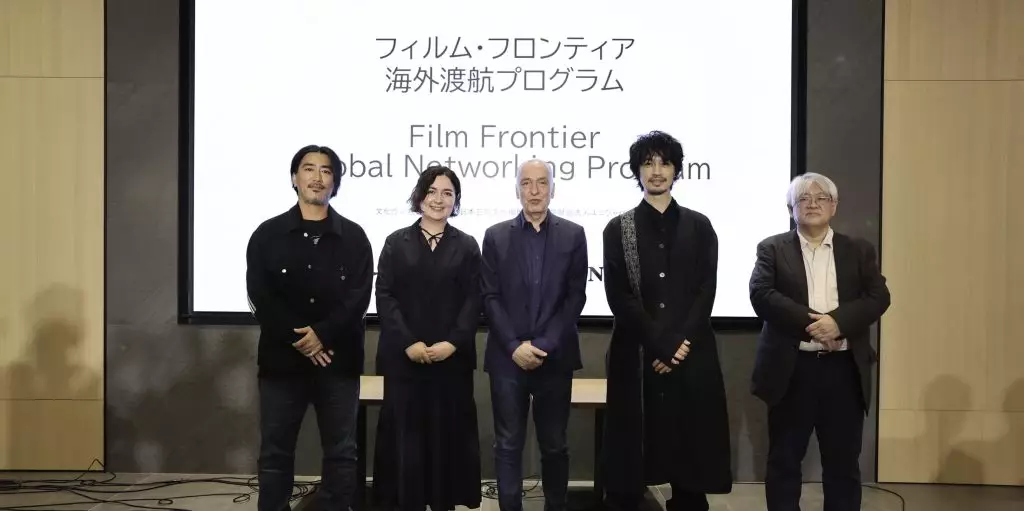The Japanese film industry is on the brink of a significant transformation with the introduction of the Film Frontier Global Networking Program. This initiative, spearheaded by Japan’s Agency for Cultural Affairs, is designed to bolster the artistic endeavors of emerging filmmakers and provide them with invaluable networking opportunities internationally. Announced during the prestigious Tokyo International Film Festival (TIFF), this initiative aims to encapsulate the essence of innovation while paving the way for the future of Japanese cinema.
By importing concepts from successful frameworks like the Cannes Film Festival residency program, the Film Frontier seeks to cultivate talent in a structured yet flexible environment. This balance of ambition and realism is pivotal in nurturing filmmakers with projects worth exploring, as emphasized by Shozo Ichiyama, TIFF’s Programming Director. The inaugural cohort includes four promising filmmakers: Shingo Ota, Emma Kawawada, Kohki Hasei, and Mai Nakanishi. These creators represent a vibrant cross-section of the industry, each poised to benefit from enhanced presentation skills, international exposure, and collaborative experiences.
Over its initial 18-month span, running from December 1, 2023, to May 31, 2026, the program will provide filmmakers focused primarily on live-action films with the opportunity for growth. While the current selection prioritizes these genres, future iterations will extend invitations to those working in animation, reflecting the rich diversity of Japanese storytelling traditions. This adaptability ensures that the program remains relevant and inclusive, catering to the varied interests and artistic directions emerging from Japan.
The program represents more than just a springboard for individual filmmakers; it signifies a concerted effort by the Japanese government to solidify the country’s standing in the global cinematic landscape. As Hirohiko Nakahar, a senior official within the Agency for Cultural Affairs, stated, this initiative aims to support the ambitions of young creatives while nurturing the future of Japanese cinema. The focus on inclusivity is commendable, as it opens doors for directors, producers, and screenwriters who are relatively new to the industry—ensuring that talent from various backgrounds can participate.
The selection process emphasizes candidates with a limited body of work—specifically, those who have directed, produced, or written no more than three feature films. This criterion highlights the program’s intention to target emerging talent. Filmmakers with sufficient experience are often burdened by industry expectations, whereas novices can approach their projects with fresh perspectives. The module offers these artists a chance to engage with seasoned professionals and expand their creative horizons in an environment conducive to artistic collaboration.
Networking is notably a significant element of the initiative. Insights from industry leaders, including Christian Jeune from the Cannes Film Festival, underscore the necessity of such connections in today’s competitive cinematic landscape. His observations regarding the success of the Cannes residency program validate the importance of comfortable, interactive environments in which filmmakers can thrive. Jeune’s remarks point to the potential for participants in the Film Frontier Program to explore their unique artistic visions unfettered by restrictive objectives—an essential factor for creative expression in filmmaking.
Despite the existence of educational institutions dedicated to film artistry in Japan, there is an evident lack of residency programs that support filmmakers throughout their projects comprehensively. Takumi Saitoh, an actor and director involved in TIFF’s Ethical Film Award jury, articulated this gap. His recent experiences at the Cannes Film Festival revealed the enriching aspects of sharing perspectives with international filmmakers, highlighting the value in establishing a robust network of support for creatives in Japan.
As Japanese cinema navigates the currents of a rapidly evolving international platform, programs like Film Frontier Global Networking stand as crucial investments in the industry’s future. By empowering budding filmmakers with essential tools and connections, Japan is not merely cultivating talent—it is laying the foundation for a thriving film culture that resonates across borders. The Film Frontier initiative embodies hope for creative expression, cross-cultural exchange, and the nurturing of future cinematic voices.

